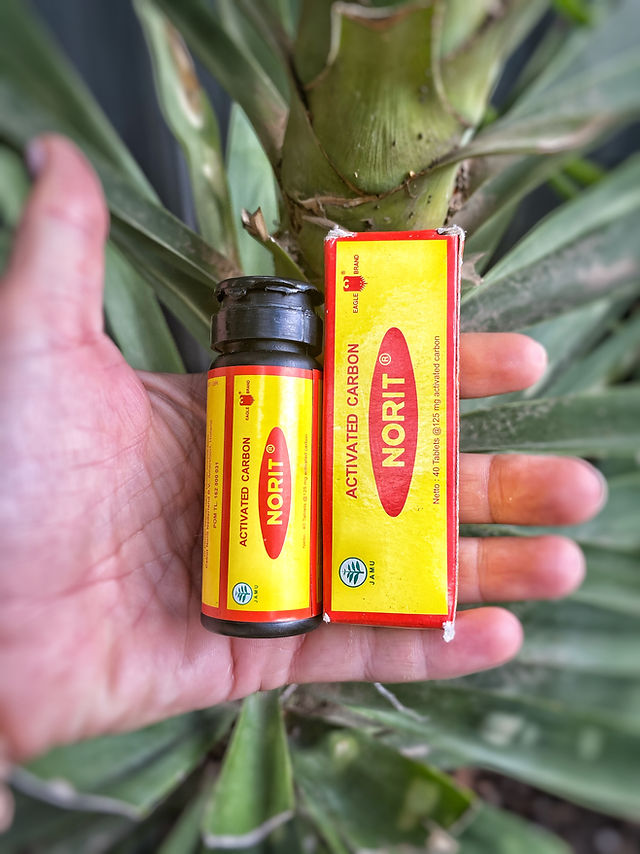Understanding Bali Belly: Causes, Prevention, And Treatment Options

Table of Contents
Causes of Bali Belly
Bali Belly, or traveler's diarrhea, is primarily caused by consuming contaminated food or water. This contamination can stem from various sources, leading to a range of unpleasant symptoms.
Contaminated Food and Water
The most significant cause of Bali Belly is the ingestion of food or water containing harmful bacteria, viruses, or parasites. These pathogens are prevalent in warmer climates and can easily contaminate food and water sources if hygiene standards are not meticulously maintained.
-
Contaminated Food:
- Undercooked seafood, particularly shellfish, is a common culprit.
- Street food, while often delicious, can pose a risk if not prepared hygienically.
- Improperly stored or refrigerated food can quickly become breeding grounds for bacteria.
- Unwashed fruits and vegetables can harbor pathogens.
-
Contaminated Water:
- Tap water in many tropical regions is unsafe for drinking and should be avoided.
- Ice cubes made with tap water can also transmit pathogens.
- Unwashed fruits and vegetables may have been rinsed with contaminated water.
Hygiene standards vary significantly across different areas, so it’s crucial to be extra cautious when choosing where to eat and drink.
Poor Hygiene Practices
Beyond contaminated food and water, poor hygiene practices significantly increase your risk of developing Bali Belly.
- Handwashing: Washing your hands frequently, particularly before eating and after using the restroom, is paramount.
- Avoid Touching Your Face: Minimize touching your eyes, nose, and mouth to prevent the transfer of pathogens.
- Choose Reputable Establishments: Opt for restaurants and food stalls with visibly clean environments and good hygiene practices.
Weakened Immune System
A weakened immune system makes you more vulnerable to infections like those causing Bali Belly.
- Stress: Travel can be stressful, weakening your immune defenses.
- Lack of Sleep: Insufficient sleep further compromises your immune system.
- Pre-existing Conditions: Individuals with underlying health conditions may be more susceptible.
Boosting your immunity before and during travel is crucial. Prioritize getting sufficient sleep, maintaining a healthy diet, and practicing stress management techniques.
Preventing Bali Belly
Proactive measures are key to avoiding Bali Belly. By following these guidelines, you can significantly reduce your risk.
Food and Water Safety
- Drink Bottled Water: Stick to sealed bottled water throughout your trip.
- Avoid Ice: Ice cubes in drinks often come from tap water, so avoid them.
- Peel Fruits and Vegetables: Peeling fruits and vegetables removes the outer layer that may harbor contaminants.
- Choose Well-Cooked Food: Opt for thoroughly cooked food from reputable establishments.
- Avoid Raw or Undercooked Seafood: Raw or undercooked seafood is a primary source of bacterial contamination.
Hygiene Practices
Reinforcing good hygiene is non-negotiable.
- Frequent Handwashing: Wash your hands frequently with soap and water, or use hand sanitizer.
- Hand Sanitizer: Carry a hand sanitizer with you for situations where handwashing isn't readily available.
- Avoid Touching Your Face: Consciously avoid touching your face.
- Choose Accommodations with Good Sanitation: Select accommodations with clean restrooms and good hygiene standards.
Prophylactic Medications
While not a replacement for good hygiene, some travelers consider prophylactic medications. However, always consult your doctor before taking any medication, as they can have side effects and may not be suitable for everyone. Your doctor might suggest antibiotics or anti-diarrheal medications in specific situations.
Treatment Options for Bali Belly
If you do experience Bali Belly, here's what you can do:
Self-Care Measures
For mild cases, self-care measures often suffice:
- Rest: Get plenty of rest to allow your body to fight off the infection.
- Oral Rehydration Solutions (ORS): Replenish lost fluids with ORS to prevent dehydration.
- Avoid Solid Food Initially: Rest your digestive system by avoiding solid foods initially.
- Bland Foods: Once symptoms subside, gradually reintroduce bland foods like rice, bananas, and toast.
Medical Attention
Seek professional medical advice if:
- You experience severe dehydration.
- Your diarrhea is bloody.
- You have a high fever.
- You experience persistent vomiting.
- Your symptoms persist for more than a week.
Medications
A doctor may prescribe medications to alleviate symptoms or treat the underlying infection. Never self-medicate; always consult a doctor for appropriate treatment.
Conclusion
Bali Belly, or traveler's diarrhea, is a common travel ailment caused by contaminated food or water, poor hygiene, and a weakened immune system. By understanding the causes and implementing the prevention strategies outlined above—from prioritizing food and water safety to maintaining meticulous hygiene—you can significantly reduce your risk of experiencing this unpleasant condition. Remember, proactive measures are your best defense. If symptoms do arise, self-care may suffice for mild cases, but always seek medical attention if your condition worsens. By being informed and prepared, you can enjoy a healthy and worry-free trip, avoiding the discomfort of stomach problems while traveling and making the most of your Bali adventure!

Featured Posts
-
 Affordable Rent Protections Potential Scale Back And Market Impact
May 28, 2025
Affordable Rent Protections Potential Scale Back And Market Impact
May 28, 2025 -
 Abd De Tueketici Kredileri Mart Ayinda Artti Detayli Analiz
May 28, 2025
Abd De Tueketici Kredileri Mart Ayinda Artti Detayli Analiz
May 28, 2025 -
 Hugh Jackmans Avengers Doomsday Participation Fact Or Fiction
May 28, 2025
Hugh Jackmans Avengers Doomsday Participation Fact Or Fiction
May 28, 2025 -
 Cuaca Hari Ini And Besok Di Kalimantan Timur Ikn Balikpapan Samarinda
May 28, 2025
Cuaca Hari Ini And Besok Di Kalimantan Timur Ikn Balikpapan Samarinda
May 28, 2025 -
 Lotto Bosses Reveal E1m Jackpot Winners Location Urgent Appeal Issued
May 28, 2025
Lotto Bosses Reveal E1m Jackpot Winners Location Urgent Appeal Issued
May 28, 2025
